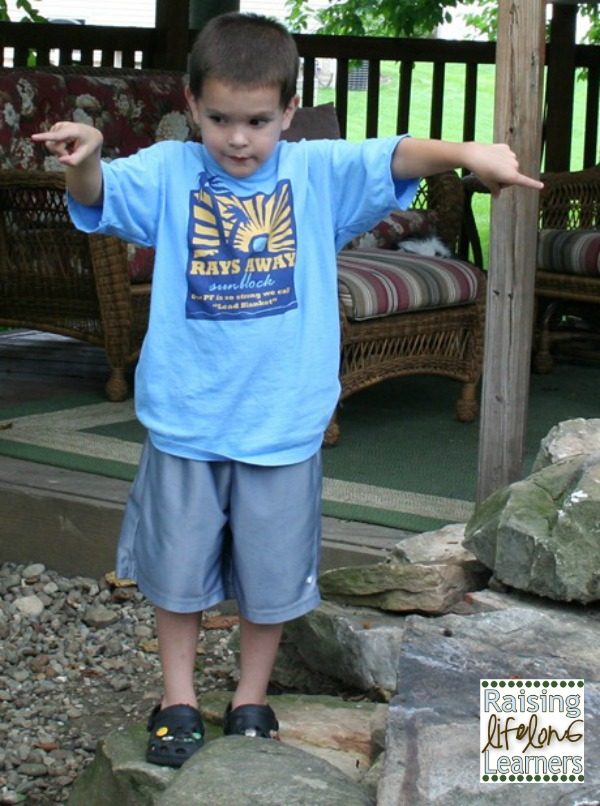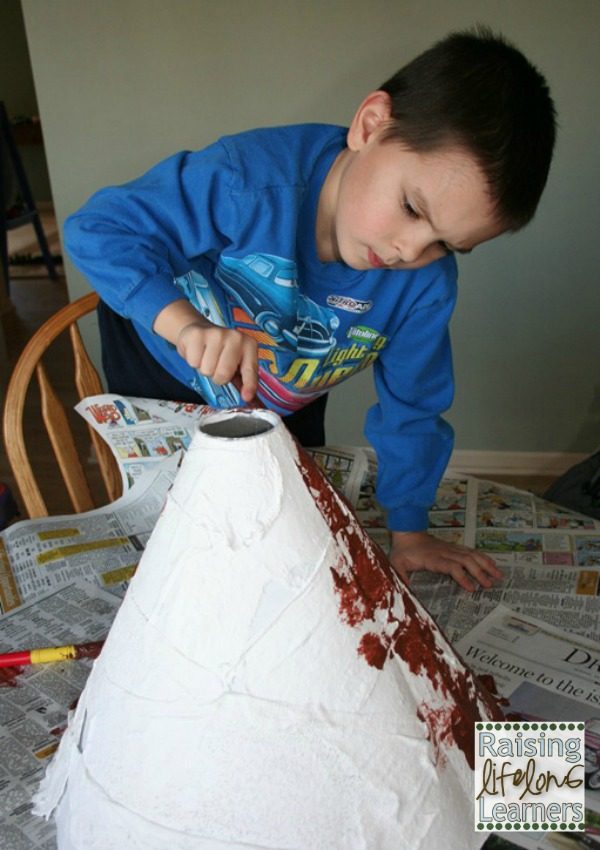Homeschooling Twice Exceptional Kids
Homeschooling twice exceptional kids is often the very best thing you can do for them… and you.
If you’ve never heard the term, twice exceptional is the label given to kids that are identified as gifted and also have a learning difficulty of some sort. Some may have learning disabilities, anxiety issues, Tourette Syndrome, ADD with or without hyperactivity, sensory processing disorders, while others may suffer from anxiety disorders or depression. The combinations are varied, as are the “symptoms” that lead to a diagnosis… or misdiagnosis.
Twice exceptional {or 2E} kids tend to struggle in a typical school environment.
Their superior intellect helps them compensate for (and mask) their disabilities. Their disabilities tend to “tone down” their intellectual gifts. They come across as class clowns, disruptions, lazy, or average. It is really difficult for the typical school setting to work for them.
That’s not to say that some 2E kids don’t do well in school. I taught several in my role as a gifted intervention specialist who excelled. We were able to meet their intellectual needs, while still accommodating for their difficulties.
But it’s tough to do that. In many classrooms, teachers are facing larger numbers of students, with fewer resources and support systems in place to meet each of their needs. A child that is a disruption in a classroom of 25 is just too hard to deal with. There are 24 others who all have needs that must be met, and only one teacher there to meet them all.
Our son, described as an “extreme thinker” by his teacher, was a challenge in preschool. He talked over people, was bossy, wanted to control how and what games were played, and wanted only his ideas used. But he loved learning from his teachers, and would usually tone it down for lessons. There were only a few kids in his class, so he could usually hijack the discussion, and engage his teachers with sophisticated understandings of the things they were exploring.
Then he entered Kindergarten. He began to struggle socially. He had no problem keeping up academically, but he couldn’t stay out of trouble. He complained about learning, he didn’t want to ride the bus, and eventually didn’t want to go to school. The story still seemed pretty typical to us, so we kept hoping he regain his love of learning – the characteristic that prompted the label “extreme thinker.”
In first grade things grew worse. He was in trouble all the time, was losing his schoolwork (work that had never even left the classroom!), and began to ask us if we’d take him out of school. His behavior continued to deteriorate—even at home—and he didn’t ask questions anymore. We tried to be encouraging, but we were growing discouraged, too. Finally, when we met with his teacher for his October conference and were told that he was reading at a 1.2 grade level (first grade, second month) when he’d left kindergarten reading beyond the third grade level, we realized that something was very wrong, and we sought help.
Several psychologists, a psychiatrist, pediatrician, and countless hours of research later, we knew what we’d already known with an unofficial degree of certainty—he was profoundly gifted. We also discovered that he struggles with ADHD, marked impulsivity, and sensory processing disorder. The impulsivity we were quite familiar with, and the ADHD wasn’t a complete surprise, but understanding the sensory piece really helped us realize that the behaviors he was exhibiting were triggered by something else, and that he’d continue to struggle in a typical public school setting.
After much thought, research, prayer, and discussion, we decided that we’d try to homeschool—something Trevor himself had suggested months before in frustration. Even when we know what to look for, we often miss those signals that are right in front of our eyes. I taught gifted kids. I discussed twice exceptionalities with parents, yet I dismissed those same characteristics in my son. I chalked it up to bad behavior…and horrible parenting.
Then, after having these things identified, I felt even worse for having put him through that frustration for so long. Have you been there? It’s easy to feel like you’re failing when you’re a parent, but when your child is so very atypical, feelings of failure are pretty much a given.
Homeschooling Twice Exceptional Kids
So I did what I always did when trying to figure out something new {and the decision to homeschool was very new to me}… I researched. A lot.
And, while I found dozens of books, essays, reports, and pages discussing the 2E child and how to meet needs while modifying curriculum for him {some that even suggested homeschooling as a smart option}, I had a hard time finding personal accounts of what worked and what didn’t.
After having homeschooled my son for five years, and adding a few more children to the mix — one highly gifted and another one twice exceptional — I know that part of this lack stems from the fact that the toolbox for teaching gifted kids… or ADHD kids… or gifted/ADHD kids… or typical kids for that matter… is ever changing. What works now is probably not going to work next week, but it may work again in a few weeks.
You just have to keep adjusting.
All I can say for sure is that twice exceptional kids are puzzles. Each and every one is different from the other, and what works for one may be a complete disaster for another. There may not be a set curriculum that will meet the needs of your learner straight out of the box, but there are strategies to try, and people who have been there that you can bounce ideas off of.
Delight directed learning in the early years is a good option. Enlisting your child to help you create an interest-based curriculum is another. Embracing those rabbit trails that gifted kids tend to want to travel down can be great fun for you and your child.
Ultimately, though, homeschooling your twice exceptional child can be the best thing you’ll ever do for him. You’ll give him the opportunity to mess up in the place where he is loved most. He can fail and flounder and struggle with you — one who understands and loves him for who he is. Always remember that — he’s yours. And he’s special. And he’s worth it.
I can’t say the homeschooling road’s been free of bumps and potholes, but it’s been infinitely smoother than sending Trevor to school had been, and we know that it’s the right choice for him. We’re taking one day at a time as we learn how he learns best.
What have you learned about your gifted or twice exceptional child since you began homeschooling him {or since he’s been diagnosed}, and what strategies have worked for his learning style?
For more information about parenting gifted kids, check out:






